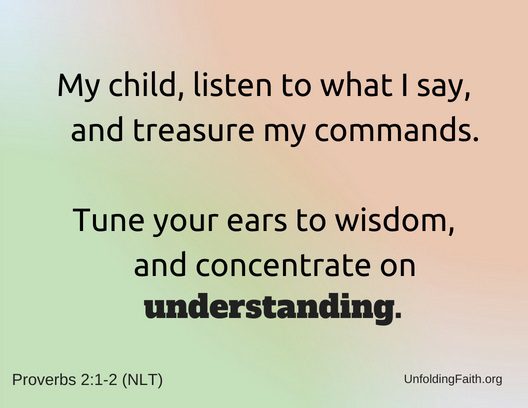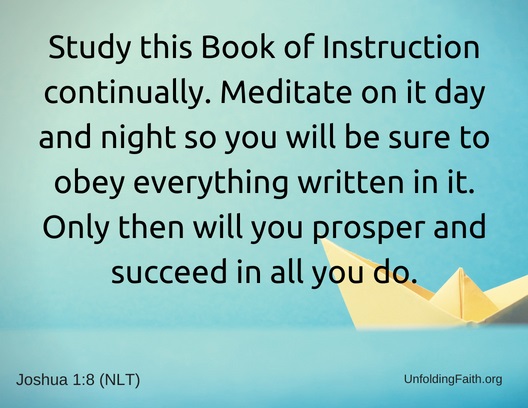
The Buzz About Quiet Time
How good are you at taking some time to intentionally stop and just relax?
Perhaps you consider yourself a world-class relaxation athlete, a Relax-lete, if you will. Some people may even think you spend a little too much time relaxing instead of being productive at all.
But even if you’re terrible at chilling, there is a very important reason to just stop, sit down, and . . . read.

Quiet time—you will probably hear your pastor talk about this a lot. Quiet time, or personal Bible study, is purposely making time each day to read the Bible, sit in God’s Word, and reflect on what He is saying. Some people forget that the Bible is not just a story—it’s a manual for life, given to us from God. It is so powerful, we must be intentional about learning from it ourselves.
Remember when we talked about how prayer is our way of communicating with God?
Quiet time is God’s way of communicating with us, through the Bible.

Jean Fleming writes in her extremely handy guide, Feeding Your Soul, why quiet time is an opportunity to “meet with God”:
“Six times in the book of Exodus, God says, ‘I will meet with you.’
“Five short words. The simplicity and economy of the statement belies the profound implication. God, Creator of all that is, will meet with you. . . . God, Who reigns in heaven, Lord of all, Who will come again, will meet with you.
“This is an unthinkable phenomenon. . . . God will meet with you? Who would have the nerve to propose such an idea? The proposal is all the more exhilarating because God Himself suggests the arrangement. God’s desire for relationship with you seeps from the pores of those five words.”

Each time you get into your Bible study, remind yourself of the foundational reasons for doing so:
- God Himself desires to meet with you, and by studying His Word, you can hear Him communicating directly with you.
- You need quiet time! This, along with prayer, is our way of discovering God’s purpose in our lives. It’s also the best guide to navigating our problems and helping others to understand the love of Christ.
- The world desperately needs to see Christ in you. We are giant billboards for how our lives are changed by Jesus. By taking study time, we will grow further in our relationship with God. Simply speaking and demonstrating God’s love for everyone gives us the ability to change the world, one person at a time, and it is through Bible study that we can become better at doing that.

Here’s some advice on how to do Bible study from the legendary Warren and Ruth Myers of The Navigators, whose booklet How to Have a Quiet Time this is excerpted from:
“We generally make time for the things we think are most important. We will never make daily time for God until we realize how rich it can be and that we can’t live without it. We need daily time with God for strength to deal with trials and temptations, for wisdom, for intimacy with Him and for joy.
“To be sure to benefit from time with God, remember the following:
- Pray for God to speak.
- Mark your Bible as you read.
- Choose a favorite verse to be the basis of your prayer, meditation and application.
- Seek a regular place.
- Find a bodily position that will keep you alert.
- Prepare your heart in prayer and worship.
- Balance Bible reading and prayer.
- Learn to concentrate.
- Use a prayer list.
- Include many types of prayer, especially plenty of praise.
- Maintain variety.
- Develop an expectant attitude.”

Okay—so what does all that mean?!
Ruth and Warren explain, “The King of the universe wants to reveal Himself and His love to us daily. He wants to make us spiritually strong, wise, and joyful. He wants to give us light and guidance for the day so that its hours will satisfy us and contribute to His good purpose for our lives. He wants to arm us in advance against temptation and send us on our way with a song in our heart and an appropriate word for the people we meet. . . .
“He has given us everything we need for lives pleasing to Him and to ourselves, and helpful to others. But we must choose to take the time to discover God’s will and draw on His strength. What counts is action, not wishes.”
The action being—Bible study!

So, you need to have quiet time to discover God’s Word for you and purpose for your life. That’s big enough to make it a priority, right? But how do you have this quiet time and really get something out of it?
First off, it’s extremely important to remember that this is not merely a ritual; this is a part of your relationship with God. God’s not going to punish you for not having quiet time—He just doesn’t roll like that. He does want to speak into your life directly, though, and having daily quiet time is the best way to hear Him.
In the following tips adapted from How to Have a Quiet Time, Ruth and Warren tell us how we can set ourselves up for success:
“Choose a regular place. Many people find this keeps new surroundings from diverting their thoughts. Choose a place as private as possible, with minimal distractions.
Avoid having your quiet time in bed. Get up, wash your face, do whatever you find necessary to be wide awake. If you have to shave or dress first, guard against letting slowness or distractions nibble away at your time.

Find a bodily position that will keep you alert. This varies from person to person and from time to time. Some people like to sit, others stand, others walk outdoors or back and forth indoors to stay awake and keep concentrating.
Prepare your heart before you utter a request. Rest your heart on the thought that you are in the presence of a living Person and that your goal is contact with Him. Thank the Lord, worship Him, pause, and humble yourself before God.
Read and pray. Whether your daily quiet time is fifteen minutes or 100 minutes long, devote about half of it to reading the Bible and half to prayer.
Learn to concentrate. Write down major truths you learn. This sharpens your thoughts and helps you remember them. A notebook for your time with God helps you meditate, share with others, and review earlier thoughts.

Use a prayer list. I keep a list of the names of people for whom I want to pray. This keeps me from mental wandering and from forgetting prayer opportunities and responsibilities. If it becomes too long, divide it into two or three lists, using one each day. Be careful not to become a slave to any method; a prayer list should be a helpful servant, not a restrictive master.
Maintain variety. Switch things up. Occasionally devote your entire time in prayer to praise. Or, after your regular time in the Word, review the previous day, praising the Lord for His faithfulness in various situations. Go over plans for the coming day, praising Him in advance for His promised sufficiency and blessings. Review your pattern occasionally, changing any part that needs it. Variety helps keep your time fresh.
Develop an expectant attitude. Come to God in faith, expecting Him to meet and teach you, to hear and answer you. Go to your quiet time expecting Him to be with you, giving guidance and power.”

—
That’s quite a lot of information on quiet time, but the best place to start is in your chair, with your Bible in your hands. Would you get up half an hour earlier to meet a friend for coffee before work? Would you give up that last thirty minutes of TV before bed to have a chat with your best friend? That’s all God wants, a chat with His friend. Give Him the space to do just that with you.
You may find devotionals helpful in your Bible study. Here we list the 6 top devotionals for new believers (and older believers in need of a spiritual boost).
There is also an *amazing* Bible study specifically for new believers, called Beginning the Walk and it’s available here >>
Need help with prayer? Try this post; How to Pray, What to Pray, and Getting Results.
How to Have a Quiet Time, Ruth and Warren Myers
Feeding Your Soul: A Quiet Time Handbook, Jean Fleming
112
